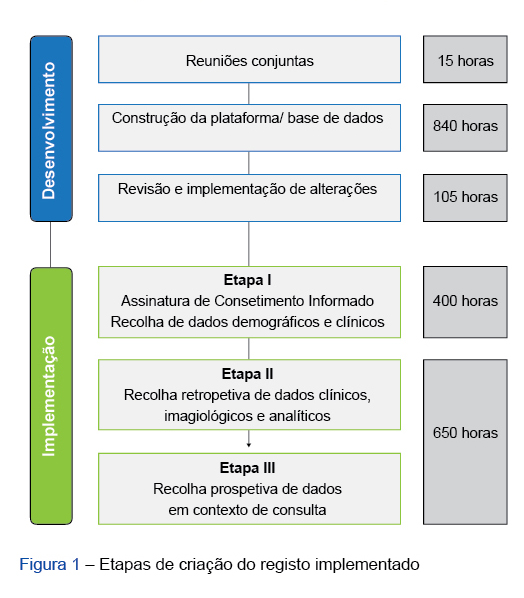SOCIAL MEDIA
Portuguese Medical Association's Scientific Journal

Introduction: Patient registries allow better evaluations of therapeutic outcomes and support personalized health care in several conditions. This study aimed to implement a local registry in a multiple sclerosis center in Portugal, in order to carry out a critical analysis of its development stages, and to perform an initial analysis of the included patients.
Material and Methods: The establishment of the registry was divided in two phases – development (creation of the online platform for data entry) and implementation (recruitment of patients and retrospective and prospective collection of available information). A demographic and clinical analysis of patients was performed.
Results: Neurologists and study coordinators participated in the project, accounting for a total of 1050 hours of work in the implementation phase. Amongst the 498 multiple sclerosis patients included, 72.9% were female and relapsing-remitting multiple sclerosis was the most common subtype of the disease. The most frequently prescribed drugs at diagnosis were beta interferons. Missing data in electronic health records were detected concerning the progression of disability and diagnostic tests.
Discussion: The difficulties encountered could be mitigated by defining minimum elements to be included in patient records and by implementing more minimalist registries. This could reduce the time spent by healthcare professionals in collecting information, thus optimizing costs, and allowing the focus to be placed on personalized healthcare by taking advantage of the registry and its associated tools.
Conclusion: Despite the amount of data collected within the scope of this study, several difficulties affected the implementation and maintenance of the registry, which could be overcome by improving future strategies.